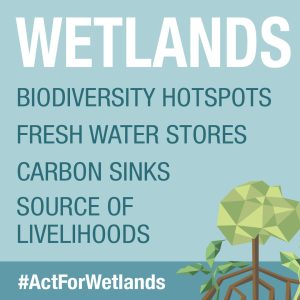Wetlands are one of the most productive of ecosystems. They cover less than 2% of the Earth’s surface yet provide habitat for over half of the world’s species. Wetlands also play a critical role in managing our planet’s fresh water through their natural filtering and cleansing. Their importance to the environment is undeniable, but it has taken decades for wetlands to be recognised as one of the most important environments on the Earth.
The future is uncertain with climate change; more extreme weather, drought, and flooding threaten to destroy these delicate habitats. It, therefore, becomes necessary to consider how we can take care of these natural spaces and preserve them and their importance for biodiversity, regulating water quality and mitigating climate change.
The Importance of Wetland Preservation
Wetlands are transitional areas between terrestrial and aquatic ecosystems, where fresh and saltwater meet. Historically, wetlands have taken second to other ecosystems like forests and grasslands because they lack easily measurable values like timber or livestock. But now, with climate change on the rise, wetlands preservation has become an urgent task. Wetlands are vital for many reasons.
- Help cleanse pollutants before they contaminate drinking water sources.
- Provide food security for communities living around them.
- They are home to many species of animals, plants, and insects.
- Offer opportunities to mitigate flooding risks.
- They can store 50 times more carbon than rain forests, helping to keep the heat-trapping gas that contributes to climate change out of the atmosphere.
How to Protect Wetlands in the Face of Climate Change
Climate change will impact wetland health in many ways including changing water and salinity levels, changing wind patterns, and altering the timing of rainfall. There are also other factors that are contributing to the destruction of wetlands. These include agriculture, mining, urbanization, off-road vehicles, oil drilling, pipelines, and dredging for construction.
There are many ways to protect wetlands in the face of climate change and manmade destruction. One way is by implementing stricter requirements on private property owners to restore or compensate for any wetland damage they have caused. Another solution is to have governments purchase land, so it doesn’t get developed. Additionally, people can help by volunteering their time to restore wetlands or participating in stream clean-ups where they remove pollution from waterways which helps support healthy wetlands.
We must also strictly regulate livestock grazing if we want to preserve our wetlands. Grazing has been shown to have a significant impact on wetland health due to the direct grazing of plants. Additionally, when the land is trampled by hooves it can lead to erosion and loss of vegetation which is needed for infiltration into the soil below ground surface level, protecting an area from flooding during high rainfall events.
Let’s Help Preserve our Wetlands
Wetlands are an important part of the environment and must be preserved. Wetlands are disappearing because of climate change, as well as human interference, and if they are not preserved, they will not be able to recover. You can help protect wetlands by reducing your carbon emissions, conserving water usage, and supporting legislation that protects wetlands.
World Wetland Day Resources
A call to take action for wetlands is the focus of this years’ campaign. It’s an appeal to invest financial, human and political capital to save the world’s wetlands from disappearing and to restore those we have degraded. There is an abundance of resources on https://www.worldwetlandsday.org/ , from success stories, events and promotional and learning material. Check it out and show your support for this great cause.
Importance in Water Quality and Environmental Impact
Wetlands trap pollutants such as phosphorus and heavy metals in their soils, transform nitrogen into a form that’s easier for plants to take in, and physically and chemically break down bacteria. They have an amazing ability to improve water quality and diminish the impacts of climate change.
Water treatment and our environmental impact are of key importance to Colloide. On all projects, we take a wider view of the habitats surrounding us and put protective measures in place. We recognise that water and wetlands are precious and depleting resources and that there is a growing need for innovative technologies and support globally to preserve them. These vital resources must be nurtured, protected, treated, recycled, and managed in the most sustainable and eco-friendly manner possible.
If you are interested in seeing Colloides full range of water treatment technologies, make sure to head over to our technologies page. Alternatively, please do not hesitate to contact us.
Sources:
https://www.worldwetlandsday.org/
https://www.worldwildlife.org/stories/what-is-a-wetland-and-8-other-wetland-facts


